The Panda Ant
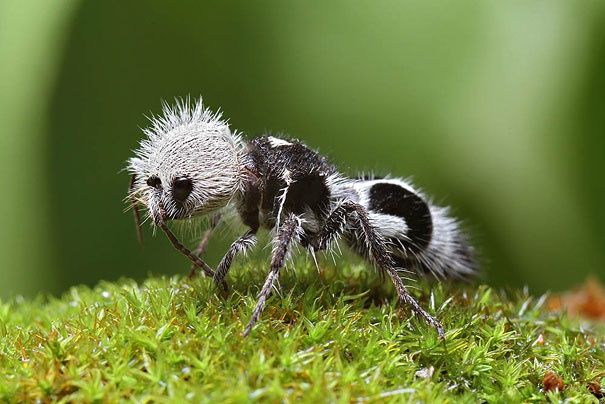
The Mutillidae are a family of more than 3,000 species of wasps (despite the names) whose wingless females resemble large, hairy ants. Found in Chile, they are known for their extremely painful stings, hence the common name cow killer or cow ant. Black and white specimens are sometimes known as panda ants due to their hair coloration resembling that of the Chinese giant panda. (Image credits: Chris Lukhaup)
The Southern Right Whale Dolphin
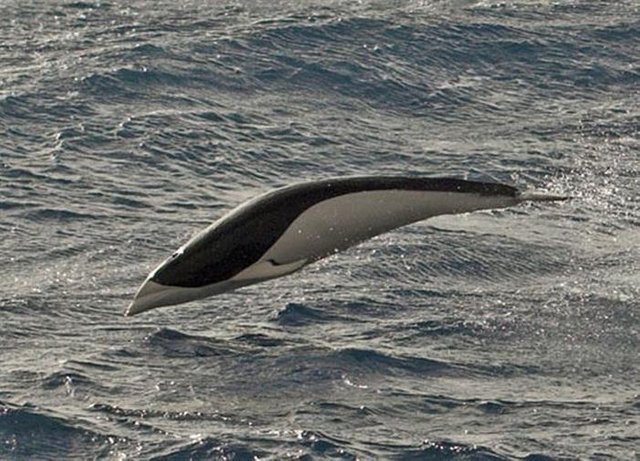
This dolphin-whale hybrid makes it home throughout cool waters of the southern hemisphere. They don't have any visible teeth either. Their diet consists of other fish and squid. Adult whale dolphins Adults grow as large as 2.9 meters or 9.5 feet, and weigh around 100 kg (220 lb).
Sea Pig
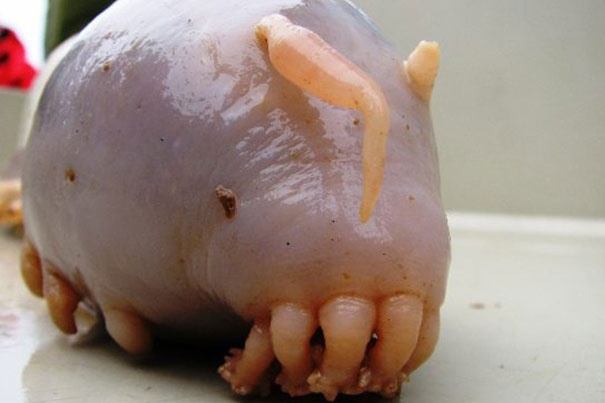
Scotoplanes live on deep ocean bottoms, specifically on the abyssal plain in the Atlantic, Pacific and Indian Ocean, typically at depths of over 1000 meters. They are deposit feeders, and obtain food by extracting organic particles from deep-sea mud.
The Markhor
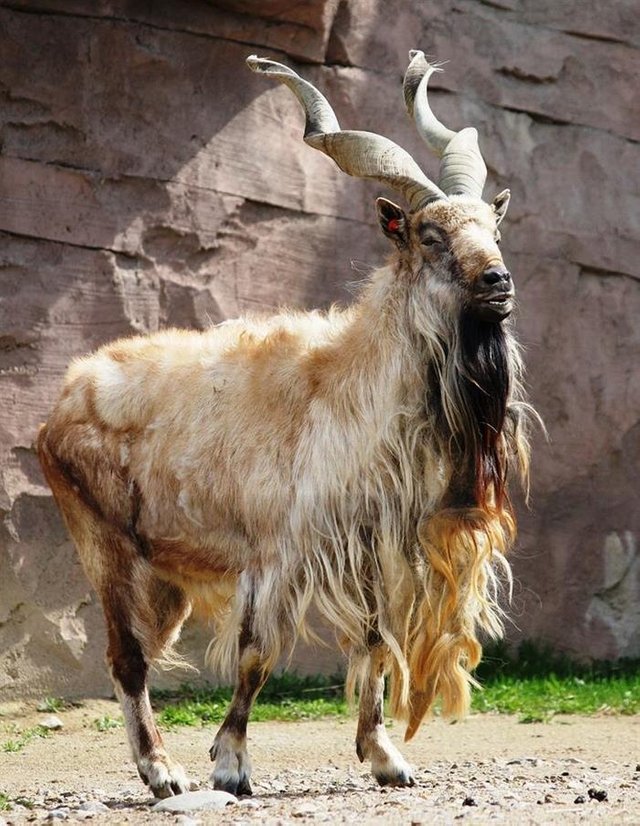
The markhor is a wild goat that can be found throughout Northeastern Afghanistan and Northern Pakistan. The origin of the name stems from its abilities kill snakes, and from the shape of their coiled horns. The locals believe that the dripping foam coming from their mouths can cure snake bites. They are also an endangered species, with only 2,500 in existence today.
The Pink Fairy Armadillo
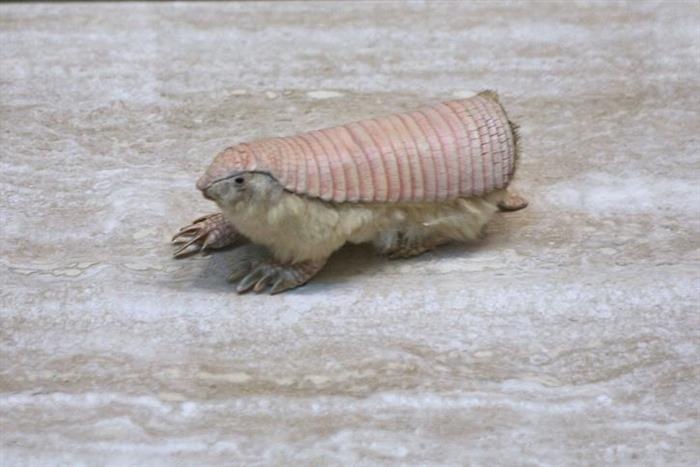
This tiny little critter measures in at only 3.5 inches (8.9cm) to 4.5 inches (11.4cm) long. The pink fairy armadillo can be found in central Argentina. Their sharp claws allow it to swim effortlessly through the sands. The bony shell acts as a defensive armor against large prey.
The Celestial Eye Goldfish
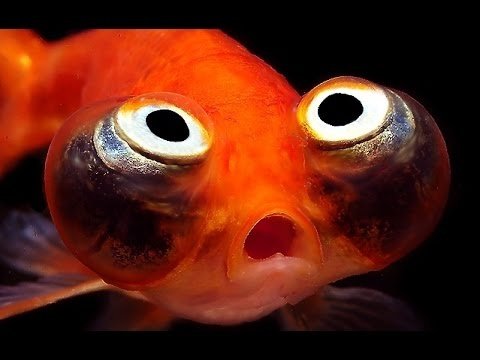
The Panda Ant
The Mutillidae are a family of more than 3,000 species of wasps (despite the names) whose wingless females resemble large, hairy ants. Found in Chile, they are known for their extremely painful stings, hence the common name cow killer or cow ant. Black and white specimens are sometimes known as panda ants due to their hair coloration resembling that of the Chinese giant panda. (Image credits: Chris Lukhaup)
The Southern Right Whale Dolphin
This dolphin-whale hybrid makes it home throughout cool waters of the southern hemisphere. They don't have any visible teeth either. Their diet consists of other fish and squid. Adult whale dolphins Adults grow as large as 2.9 meters or 9.5 feet, and weigh around 100 kg (220 lb).
Sea Pig
Scotoplanes live on deep ocean bottoms, specifically on the abyssal plain in the Atlantic, Pacific and Indian Ocean, typically at depths of over 1000 meters. They are deposit feeders, and obtain food by extracting organic particles from deep-sea mud.
The Markhor
The markhor is a wild goat that can be found throughout Northeastern Afghanistan and Northern Pakistan. The origin of the name stems from its abilities kill snakes, and from the shape of their coiled horns. The locals believe that the dripping foam coming from their mouths can cure snake bites. They are also an endangered species, with only 2,500 in existence today.
The Pink Fairy Armadillo
This tiny little critter measures in at only 3.5 inches (8.9cm) to 4.5 inches (11.4cm) long. The pink fairy armadillo can be found in central Argentina. Their sharp claws allow it to swim effortlessly through the sands. The bony shell acts as a defensive armor against large prey.
The Bush Viper
Spiny bush viper is venomous snake native to Africa. These snakes live in Congo, Uganda and Kenya. There are three subspecies of spiny bush viper that differ in color, size and type of habitat where they can be found. Spiny bush vipers prefer rainforests that offer plenty of flowering bushes. These snakes are rarely seen in the wild because they inhabit regions that are distant from the human settlements. For the same reason, exact number of remaining spiny bush vipers in the wild is unknown.
The Celestial Eye Goldfish
The eerie eyes of the Celestial Eye Goldfish are mounted on the top sides of its head and constantly gaze upward. This makes it perhaps one of the most unusual of all the goldfish varieties. The Telescope Goldfish, with its extended eye stalks, and Bubble Eye Goldfish, which sports watery eyebags, are a close second and third.
Celestial Eye Goldfish are also called StargazersStargazers! Always looking upwards The Chinese called this fish the Stargazer. They are believed to have developed it in the later part of the nineteenth century, somewhere around 1870. During this time, its eyes were at least partially mobile. The Japanese further developed it in the early 1900s. Through selective breeding, the resulting goldfish had eyes that were permanently locked in an upward position. To the Japanese, this goldfish is known as the Deme-Ranchu.